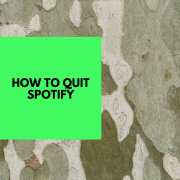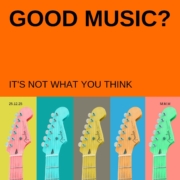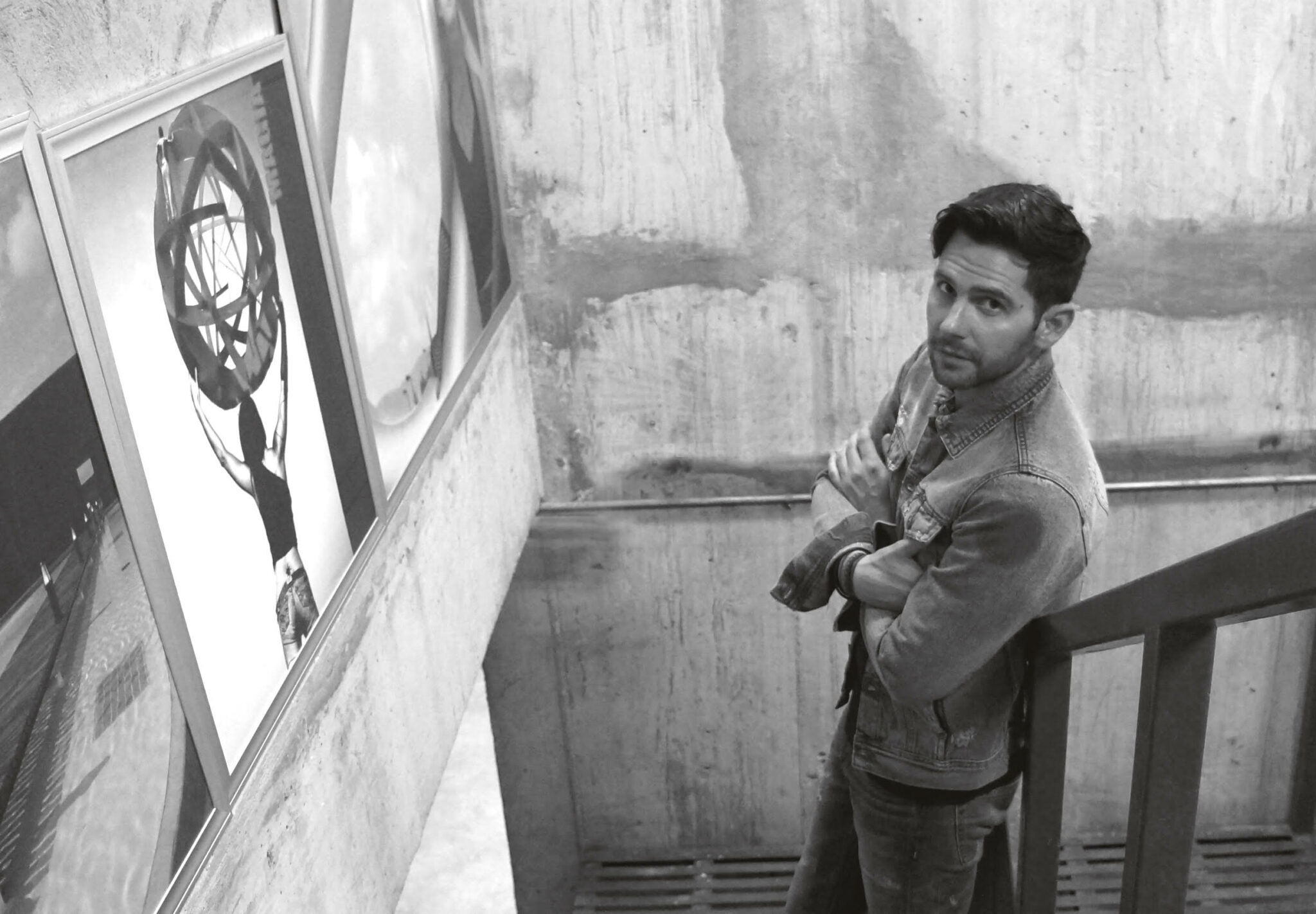Guide to shameless self-promotion
Let’s face it, self-promotion is certainly one of the most loved & hated topics musicians face on a daily basis. I mean, you make music, it’s hard to repress that inner compulsion of wanting to share your work to the world right? Finishing music and releasing your hard work to the world feels amazing. Receiving constructive feedback from people you respect will also help unlock obstacles that make us reach the level of production we aim for. But we have to get it out for others to hear right? This post will help you be being your guide to shameless self-promotion.
Many people see self-promotion as something they need to do, which can make it feel like a painful obligation.
Music is a very strong, and personal form of expression. As artists we want to know if our message is understood and appreciated by others. In a way it’s self validating. Proper self-promotion is always about how to do it in a way that is truly authentic, and not make us look like something we are not. Now that we understand this – there are a few facts we need to check in order to make our self promotion efforts work for us. I’m not talking about going viral on social media, but specifically your daily efforts on social media as a way to leverage our network, and create something useful.
The minute you understand that it’s not an obligation but more of a catalyst to get things done, the dynamic will automatically change. This is a process called reframing your train of thoughts.

If you share your music with the intent and idea that you’re trying to unite, bond and communicate something personal, a huge chunk of guilt be removed from the idea of self promotion. Giving up on hustling sales and popularity will create a positive pivot in your career. We need to stop seeing the act of sharing music as a way to be seen, heard, known.
I’ve been reading a really helpful book named “Designing your life” which approaches what you want out of life through the mind of a designer. The point of the book is – to become who you want, to have the life you want, you first need to self reflect, and ask yourself what is going on to pinpoint what issue you’d like to fix. In our case, our target here is to build a healthy and strong network.
Over the past weeks, I’ve come across a few articles that state the importance of your surroundings and contacts to achieve the level of success you want. One of the main reason I am where I am right now was that I’ve been lucky enough to have amazing people helping me along the way. Behind every success story, there’s often a dedicated team working in the shadows of that success. One of the ways to keep riding high is to constantly share your wins with your tribe, and go out of your way to make sure everyone in your tribe is appreciated and part of your success.
How to build and design your music life comes with at least 4 important teamsters:
- The feedback. That guy has the culture of the music you’re making and loves the music you also love. Therefore, his input means something as long as he’s being honest, of course.
- The knowledge. This member is someone who has technical knowledge you don’t have and can be answering critical questions in time you need it.
- The creative. This person feels the trends, surfs the ideas better than no one. He can propose ideas that are unusual but that can be leading you to something. See this person as a muse.
- The propaganda. If you are shaky with social medias, let this person rave about your music while you can post about other things. This person becomes the validator and that is useful for your success.
Finding your team takes years and can also be shifting over time. But you need to connect with others and build your network to find the gems.
 Ok, so how can we apply that in practice? How do we get started from scratch?
Ok, so how can we apply that in practice? How do we get started from scratch?
- Don’t ask without giving first. I’ve made this #1 because this is often misunderstood. For instance, I often get emails from people giving me lot’s of compliments about my music, and quickly send me a follow up email asking me to listen to their music and provide feedback. There’s nothing wrong with asking for feedback, but it doing so out of nowhere makes me question the integrity of their compliments in the first place. It takes a lot of time to gain someone’s attention and trust. Involving yourself with someone is an investment, and building a genuine relationship takes time and often cannot be made overnight.
- For networking, try: approaching and following people at your skill or experience level. You can and will grow with them. Leave feedback and appreciation on their music whenever there’s something you enjoy. Do not ask for anything in return.
- For social media, especially Twitter or Facebook – share the music you are really into right now, especially from artists that aren’t well known. People love discovering new artists, and if YOU are that artist and find someone spreading praise for you the feeling will be an amazing one.
- Be a supporter. You probably saw that video of the guy dancing in a festival in a super weird way, someone with a huge crowd following him comes to join the dancer, and just like that the party goes off. The second guy joining is crucial, he is the social influencer, the supporter. In the same vein as the previous point, you can be that guy by being the first one who leaves comments on Soundcloud and proposes to play people’s music in a podcast (if you’re a DJ).
- For networking, try: Going to shows to meet people. The in-person contact never fails. If your contacts are abroad, try engaging conversation through messaging.
- For social medias, try: Offering your help to labels, in any way possible. This is an important way to be part of something. You have no idea how difficult it is to run a small label, so any help can be useful and appreciated. Look at what you are good at and see if you can help. Perhaps you can help with the blog, graphic design, website, PR, etc… If it’s a small organization at least one part of the label might need a hand. Then on your social medias, you can support and champion the label, which will bring many unsuspected contacts.
- Curiosity pays off. People think that approaching and forging relationships with fellow music producers involves talking about music. I’ve known artists that refused to forge any kind of contacts with people who initially approached them for music related reasons. They wanted to spend time with the person first to see if there was true chemistry. I believe many artists (to some degree) are social weirdos who often lack a variety of social skills. Being patient and curious will be essential in the way you engage with him/her, to make sure that person feels comfortable talking with you.
- For networking, try: reading articles, start conversations, think of how someone approached you in a way that made you feel great. I’m pretty sure it wasn’t just music-related. Apply this to others.
- For social medias, try: Share information about your own interests. People in general hate self-promotion if it’s constant but if it’s something that is either useful or occasional, it will be seen positively. So, if your feed is self-centred it’s going to be annoying for your contacts. I’ve seen some artists spend a lot of their time sharing their passion for traveling, food, clothing, cars or memes… We all know you like other things than music and if you can share what it is you’ll attract minds alike which can become supporters of your music, later on.
- Consistency is crucial. Not only for yourself but in others. Successful people have no tolerance for others who are inconsistent, unreliable. If you’re going to connect with someone, be there and always come back. I’ve built some solid contacts with some people who have been always sending me messages and be there for me. They won me over and now I love working with them.
In closing – within the book I was relating to, there is talk about creating a prototype to know which method of promotion feels and works best for you. To get comfortable communicating, sharing, showing your personal side, you need a lot of practise to get into a groove. Building your network takes time. But once you found your way to work, you know you have a formula you can repeat and always feel good about.
SEE ALSO : Find a track tester for your productions












Leave a Reply
Want to join the discussion?Feel free to contribute!